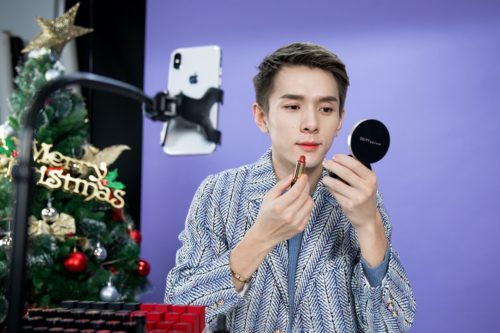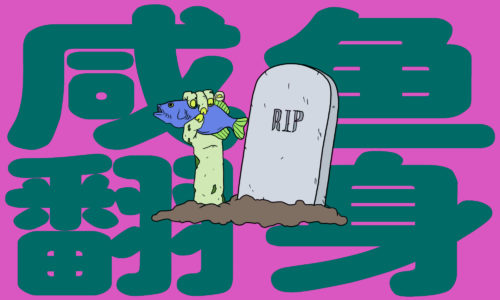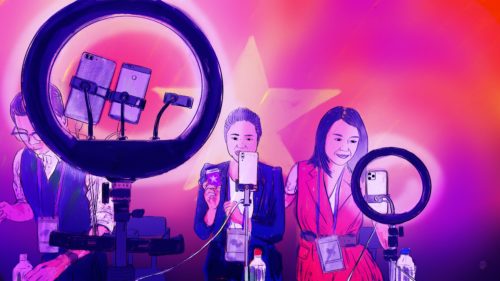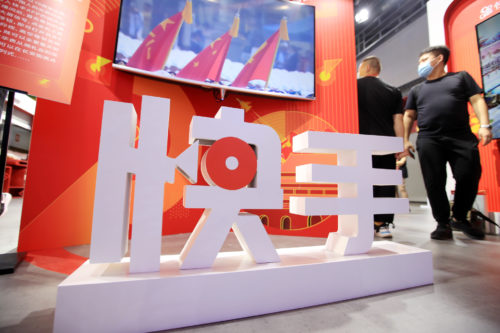China’s top shopping influencer tells cash-strapped followers to work harder
Li Jiaqi, the "Lipstick King" who made $250 million last year, is being boycotted by consumers for saying on a weekend livestream, “Sometimes you have to reflect on yourself and ask why you haven’t received a raise after so many years. Have you been working hard enough?”
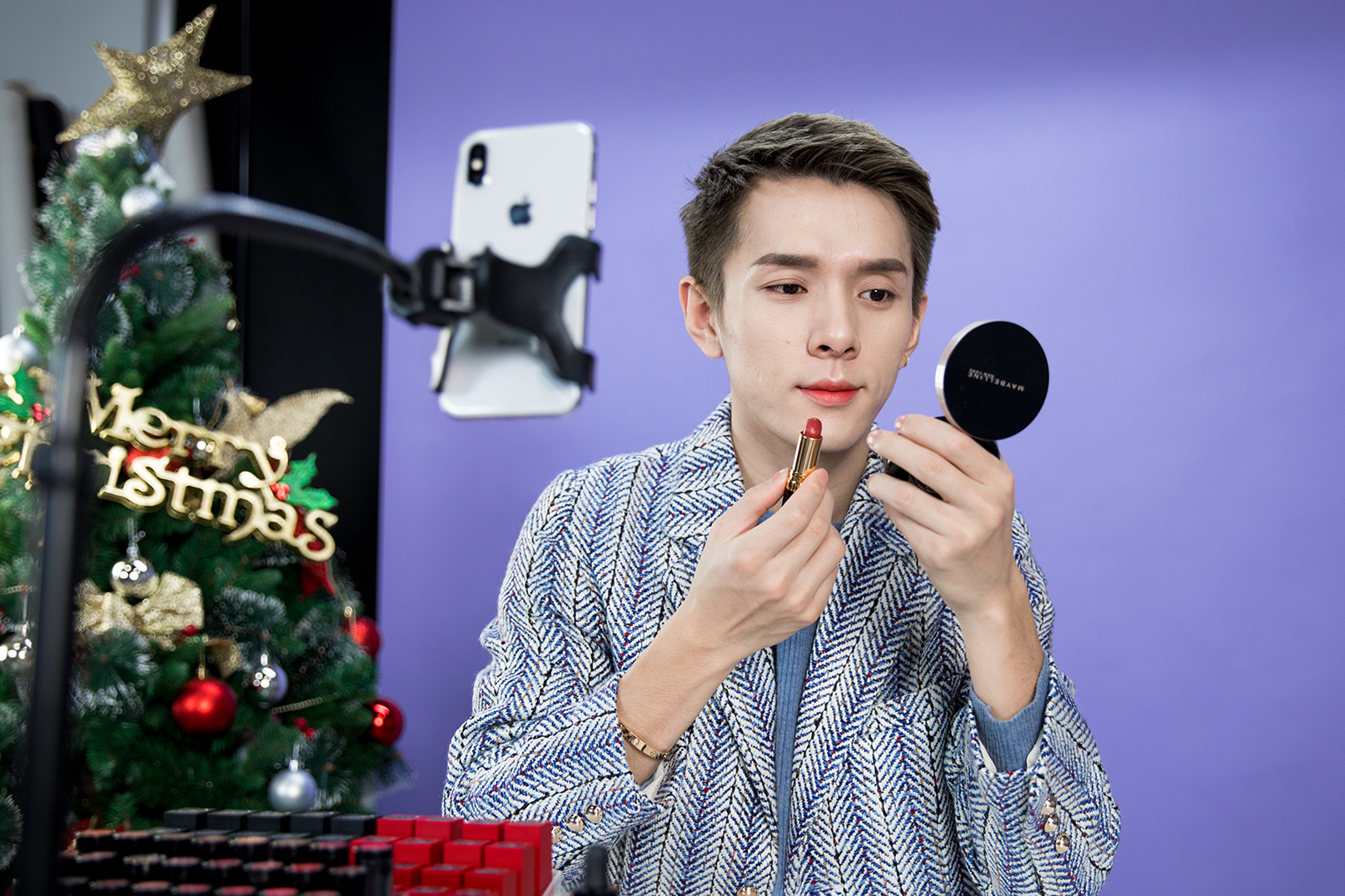
Chinese celebrity livestreamer and top shopping influencer Lǐ Jiāqí 李佳琦, who is known as the “Lipstick King” and has over 75 million followers on livestream platform Taobao Live, has come under fire after a recent online broadcast, where he told viewers complaining about pricing to look inward and improve their money-making abilities.
On Chinese social media, Li’s remarks have sparked intense debate about consumer sentiment in the face of greater economic uncertainty, and whether high-earning individuals in Chinese society are out of touch with the working class.
The controversy erupted on Sunday when Li was making a sales pitch for an eyebrow pencil from Chinese makeup brand Florasis. In response to a viewer of the livestream session, who lamented that the cost of the product (79 yuan, or $11) seemed to have increased over the years, Li fired back, telling the critic to stop “spreading outright lies” and be more supportive of domestic companies, which he said had been struggling with sales.
“Florasis never compromises on the quality of its products. I witnessed its growth and I know everything about it,” he said. “The pencil has always been 79 yuan and the deal I’m offering today includes two refills. How could you call that expensive?”
However, Li’s rant didn’t end here. Seemingly enraged by the negative comment, he went on to lecture the viewer, “Sometimes you have to reflect on yourself and ask why you haven’t received a raise after so many years. Have you been working hard enough?”
“I’m about to lose my mind!” the famous influencer raised his voice while becoming increasingly exasperated. Li’s outburst even surprised his co-host, who was visibly uncomfortable during Li’s retort.
The message didn’t land well. Shortly after the livestream ended, the backlash on social media was swift. Over the course of Sunday, a slew of hashtags spurred by the incident went viral on Weibo, where they have racked up more than 2 billion views collectively.
Li made over $250 million in 2022
Though some defended Li, many more people criticized the livestreamer as privileged, tone-deaf, and condescending.
Coming from a humble beginning as a beauty consultant at a L’Oreal shop in Nanchang, a small city in southern China, Li soared to prominence in 2017 when he began hosting marathon livestream sales sessions on ecommerce platforms. Riding a wave of interest in this novel way of shopping, Li set himself apart in a competitive field with his carefully selected products, unadulterated reviews, and a sense of authenticity in his delivery.
The top-notch hawker once sold 15,000 lipsticks within five minutes, earning himself the nickname “China’s Lipstick King.” Among the general public, Li’s mastery of peddling made him nearly as recognizable onscreen as any TV or movie star in China, with several of his catchphrases — especially “Oh, my God, buy it!” — having become household lines.
In light of Li’s remarks about the eyebrow pencil, many critics argued that Li’s celebrity status had made him lose touch with the life of ordinary working-class Chinese. It also wasn’t lost on the critics that the influencer, who owns a marketing agency based in Shanghai, raked in over 1.85 billion yuan ($250 million) in 2021, mainly through commission payments from brands that he worked with, making Li the highest-earning ecommerce livestreamer of the year. While Li rarely boasts about his wealth, local media reported in 2020 that he purchased a swanky three-story penthouse in the private apartment complex Yunjin Oriental, which is located in the middle of a glitzy riverside district just off the Bund in Shanghai.
“He’s been hanging out with rich people for so long that he forgot his humble beginnings and how it feels to be poor. He just can’t relate to what our ordinary people are going through now,” a Weibo user wrote, while another one fumed, “It’s apparent that he has no respect for his followers anymore. The arrogance and impatience is so obvious.”
As the outrage intensified, Li first made a written apology in the early morning of Monday. “As someone who started as a sales associate working at a cosmetics shop, I am well aware that working is hard,” he wrote in a Weibo post that has garnered over 247,000 comments and 6 million likes. He said he regretted not being able to “manage emotions better.”
Later that day, Li addressed the matter again during a livestream, apologizing for what he described as “inappropriate” remarks and vowing to work to repair his relationship with fans. “It’s not my place to judge anyone on the internet,” an emotional Li said. “I must never forget where I started and what got me here.”
Li has had his fair share of controversy before the eyebrow pencil backlash, but he was always able to bounce back from the scandals. In 2019, Li was accused of misleading consumers after struggling to prove that a non-stick cooking pan he was trying to promote actually lived up to its promises. A few months later, Li landed in hot water again after people discovered that he lied about the origin of a seafood product he was selling.
Last year, Li landed in trouble after showing a tank-shaped cake during a livestream in June, just hours before the 33-year anniversary of the Tiananmen Square crackdown. The broadcast was abruptly cut short, prompting speculation as to whether the Chinese government stepped in to censor the influencer. But after a three-month digital disappearance, Li quietly resurfaced on Alibaba’s Taobao Live, where he went about business as usual and sold an estimated $18 million worth of products to ardent fans and shopping-starved consumers.
“For many people, being broke is not a choice”
This time, though, the ferocity of the backlash was particularly striking. Even after the apologies, the furor showed no signs of abating. On Weibo, several polls on the issue showed that most people found Li’s expression of regret “insincere,” with many calling for boycotts of him. Since the controversy started, Li has lost more than 1 million followers on Weibo.
“Who really thinks that he cried because he felt bad for what he said? He was crying about the financial loss he has to suffer because of this!” a Weibo user wrote. Another critic neatly summarized the backlash with the message, “I have no doubt Li is a hustler, but many of us work just as hard as he does. We are just not lucky enough to achieve his level of success. For many people, being broke is not a choice.”
Some observers pointed out that Li’s remarks were especially jarring in light of China’s economic slowdown, which has forced Chinese shoppers to tighten their purse strings in anticipation of harder times ahead. Despite a host of measures implemented by the authorities to stimulate spending, including boosting household income, improving business environment for private firms, and stabilizing youth employment, consumer confidence in the country has remained weak this year.


